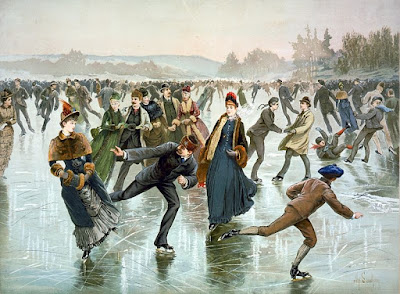Wednesday, December 16, 2015
A Connect-the-Dots Mindset
I'm not sure why anyone would have thought that this month—of all months in the year—would make an excellent opportunity for fund raising, but that is exactly what our local council of the Boy Scouts of America decided. And so, just the other day, I found myself accompanying my husband to an elegant breakfast hosted by the council and designated as a "Distinguished Citizen Award" event, partly because I appreciate the person being honored that morning and partly because my husband likes to do what he can to support our local Boy Scouts.
After chit-chatting with endless streams of people I don't really know, we settled into one of those conversations that just seem to grow and grow with more possibilities. It seemed like everything one of us said led to more detail and more desire to respond. If I were diagramming that discussion as a decision tree, the answer at each node would be, "Yes, keep talking." We never got to the end node—until we looked up and realized all the dishes on the tables had been cleared off and everyone had left the meeting room except the kitchen help.
What keeps some conversations going, while others falter before they've started?
I couldn't help notice, while we talked, that with every comment by the others in our group, there was this sense of connection. One idea sparked another. Details initiated observations. I found myself thinking of possibilities—what else could be done, who else would be able to help, why this would be a great opportunity.
This connecting-the-dots urge is not unfamiliar to me. It didn't take long to realize that is the incentive that draws me deeper and deeper into researching my family history. It seems everything and everyone has a connection—to someone, to some place, to some activity. After all, we are social beings. Most anything people have done has required some sort of connection with others—if not in the creation of it, at least in the consuming or sharing of it.
The "Distinguished Citizen" being honored in that morning's event happened to be a local politician who had served both at the city and state level. Perhaps that is what inspired me to notice that role of connections. Politicians are consummate networkers. They have to be—their very existence demands that skill.
While the morning's experience reminded me that the Connect-the-Dots mindset is not the exclusive domain of genealogists—nor is it the trademark solely of politicians—it also started me thinking about just what it is that draws us, as family history researchers, together.
I used to think it was because a genealogist is the only soul in the universe who can understand another genealogist.
Not so, I'm starting to think. Perhaps, rather than that narrow focus on sharing of notes on fathers-of-fathers, what our minds are really seeking are others out there who also thrive on observing the connections between entities in life—not just family members, but any connections.
Yesterday, I had lunch with my favorite local genealogist. As always, we love getting together to talk. We never seem to lack for things to talk about. I used to think it was because we both love genealogy, and we are loathe to spoil that fascination with the My-Eyes-Glaze-Over bummer we can experience when we make the mistake of discussing our latest thrilling discovery with non-fans.
Now, I'm not so sure. Is it really just because of genealogy? Or is it thanks to the tendency of our inquisitive minds to look for connections? Maybe its just because we've found that, in order to have an interesting conversation, our best bet is to find someone else who is handy at observing connections—any connections. Like a heat-seeking missile, our minds hone in on the ways things connect. Then, delight in the discovery. And ramp it up to the next node in the conversation decision tree.
I've heard a lot of family history researchers admit that they are the quiet type. That may be so. Once we can break through that brick wall of silence between strangers, though, even the shy ones can turn out to be interesting. It's those connections that draw them out.
Above: "Skating," lithograph by Canadian artist, Henry Sandham; courtesy United States Library of Congress via Wikipedia; in the public domain.
Subscribe to:
Post Comments (Atom)

Sounds like a lively productive group! It is fun to be in sinc with people:)
ReplyDeleteThere are times when you get into a conversation and something just "jells"--those are the best ones!
Delete